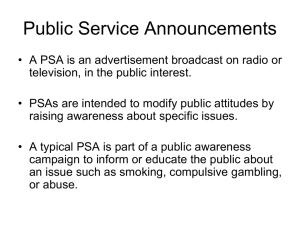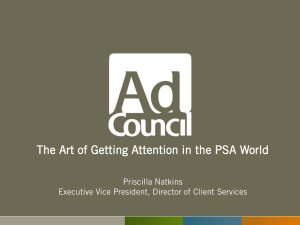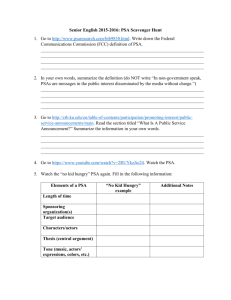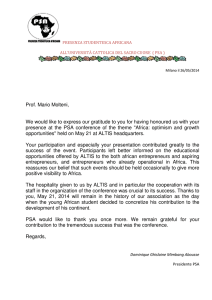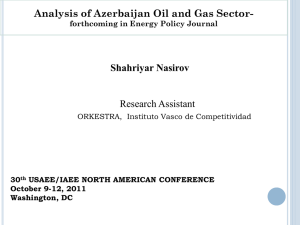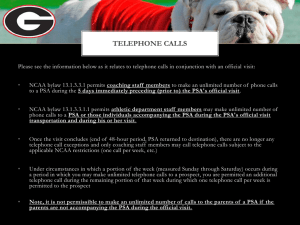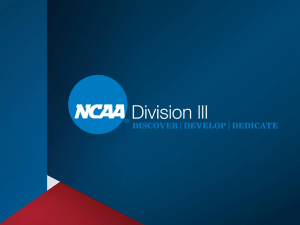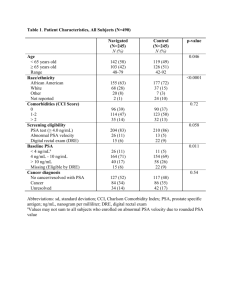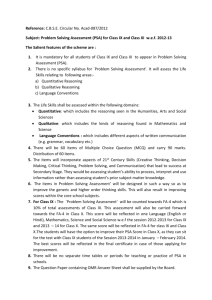PSA submission guidelines and samples (Word Document)
advertisement
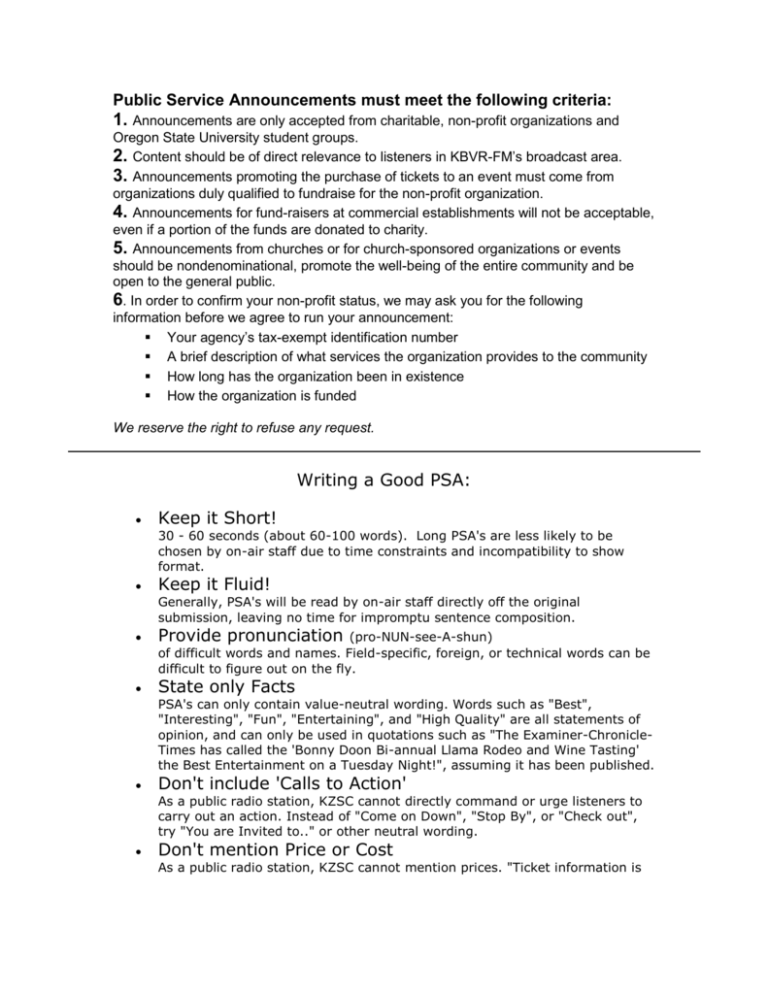
Public Service Announcements must meet the following criteria: 1. Announcements are only accepted from charitable, non-profit organizations and Oregon State University student groups. 2. Content should be of direct relevance to listeners in KBVR-FM’s broadcast area. 3. Announcements promoting the purchase of tickets to an event must come from organizations duly qualified to fundraise for the non-profit organization. 4. Announcements for fund-raisers at commercial establishments will not be acceptable, even if a portion of the funds are donated to charity. 5. Announcements from churches or for church-sponsored organizations or events should be nondenominational, promote the well-being of the entire community and be open to the general public. 6. In order to confirm your non-profit status, we may ask you for the following information before we agree to run your announcement: Your agency’s tax-exempt identification number A brief description of what services the organization provides to the community How long has the organization been in existence How the organization is funded We reserve the right to refuse any request. Writing a Good PSA: Keep it Short! 30 - 60 seconds (about 60-100 words). Long PSA's are less likely to be chosen by on-air staff due to time constraints and incompatibility to show format. Keep it Fluid! Generally, PSA's will be read by on-air staff directly off the original submission, leaving no time for impromptu sentence composition. Provide pronunciation State only Facts (pro-NUN-see-A-shun) of difficult words and names. Field-specific, foreign, or technical words can be difficult to figure out on the fly. PSA's can only contain value-neutral wording. Words such as "Best", "Interesting", "Fun", "Entertaining", and "High Quality" are all statements of opinion, and can only be used in quotations such as "The Examiner-ChronicleTimes has called the 'Bonny Doon Bi-annual Llama Rodeo and Wine Tasting' the Best Entertainment on a Tuesday Night!", assuming it has been published. Don't include 'Calls to Action' As a public radio station, KZSC cannot directly command or urge listeners to carry out an action. Instead of "Come on Down", "Stop By", or "Check out", try "You are Invited to.." or other neutral wording. Don't mention Price or Cost As a public radio station, KZSC cannot mention prices. "Ticket information is available at 420-4334" is preferable to "Tickets are Available for $5" or "Parking is $42" or even "Seniors are Half Price". Include Contact Information and necessary dates and times. People need to know, right? Don't submit Press Releases, Brochures, etc. Due to the volume of PSA's received by KZSC, we lack the resources necessary to convert press releases, brochures, calendars, and posters into ready-to-air Public Service Announcements. We will happily edit PSA's which conform to formatting guidelines for length, diction, and clarity. Condensing these informational resources into brief PSA's according to guidelines ensures a better chance of air time. Here are some examples of good PSA's. They are short, yet informative and to the point. The fact that they are easy to read increases the likelihood of air time, as DJ's have little time to sift through information and compose announcements on the fly. ATTN: PSA Director/Community Relations PULL: 9/22/02 KIDS HELPING KIDS IN HARVEST FOOD DRIVE SCHOOL CHILDREN IN SANTA CRUZ AND SAN BENITO COUNTIES WILL HELP FEED THEIR HUNGRY NEIGHBORS IN THE 12TH ANNUAL HARVEST FOOD DRIVE FROM SEPTEMBER 30TH TO OCTOBER 11TH. STUDENTS AT PARTICIPATING SCHOOLS WILL FILL BAGS AND BARRELS WITH FOOD FOR DISTRIBUTION THROUGH THE SECOND HARVEST FOOD BANK. FAVORITES ITEMS ARE CANNED FRUIT, VEGETABLES, MEATS, TUNA, SOUPS, PEANUT BUTTER, PASTA, RICE AND BEANS. TO DONATE FOOD, MAKE SURE YOUR SCHOOL IS PARTICIPATING, OR FIND OUT HOW YOU CAN HELP, CALL THE SECOND HARVEST FOOD BANK AT 722-7110. SCOTTISH COUNTRY DANCING! ENDS 9/3/01 If you like Scottish music and you like to dance, now is the time to check out Scottish Country dancing! We welcome beginners. Instruction for beginners starts in September, first night is FREE! Thursday evenings, 8-10 p.m. at First Congregational Church, 900 High Street in Santa Cruz. No partners are necessary, and be sure to wear soft-soled shoes. For additional information, call Judy at 4756975. (time: 30) We all know about the danger of entanglement in combines and balers. But do you know how fast accidents can occur? Snapping rolls on a cornhead pull in stalks at a rate of about 12 feet per second. It may appear to be a slow, easy rate, but never try to unplug a corn stalk in a live cornhead. The snapping rolls can pull the rest of the stalk -- AND your hand and arm -- into the machine in less than a second, which is about the same time it would take for you to release the stalk. It's easy to forget your human limitations when you're around powerful machinery all day. But a few seconds can make a big difference, especially if you use them to be safe. 0:30 64 Words GET CONNECTED WITH "AFFORD-A-PHONE" FROM THE FEDERAL COMMUNICATIONS COMMISSION. IF YOU RECEIVE FOOD STAMPS, MEDICAID, SUPPLEMENTAL SECURITY INCOME (SSI), FEDERAL HOUSING, ENERGY, OR SIMILAR BENEFITS, YOU MAY QUALIFY FOR DISCOUNTED "LIFELINE AND LINK-UP" TELEPHONE SERVICE. IF YOU THINK YOU QUALIFY OR KNOW SOMEONE WHO MIGHT, CONTACT YOUR LOCAL PHONE COMPANY OR WRITE GET CONNECTED: AFFORDA-PHONE, FCC, WASHINGTON, DC 20554, OR CALL 1-888-CALL-FCC; THAT’S 1-888-CALL-FCC. PFD Facts (0:60) Using a life jacket, or personal flotation device (PFD) can be the critical factor in surviving a boating accident. Delaware law states that there must be a PFD for each person on the boat and anyone 12 years of age or younger must wear a PFD at all times. Any boat 16 feet and longer, except canoes and kayaks, must also carry one throwable PFD. PFDs should be easily accessible on the boat, not stowed in closed compartments or with other gear stowed on top of them. There are different types of life jackets. It's important to get one that fits properly, especially for children. Life jackets can be purchased at most marine supply stores or boat dealers, where you can try on several until you find one that suits your needs. This is SeaTalk, a public service announcement from the University of Delaware Sea Grant College Program and this station. Public Service Announcements Public Service Announcements (PSAs) are short, "non-commercial" announcements prepared to provide information to the public. A non-commercial announcement contains information that benefits its intended audience, rather than the company that created it. For example, a PSA that provides health information differs from an ad that promotes the sale of a health product. Consequently, most PSAs are produced by nonprofit associations, but commercial, for-profit organizations may also use them to promote their nonprofit activities and events. Free air time (usually 10- to 60-second spots) on radio is available to groups such as community associations, advocate groups, nonprofit organizations and for-profit organizations that are promoting their community, nonprofit events with PSAs. Radio stations donate this air time to meet the Federal Communications Commission's public service requirements. PSAs are used by organizations to: Publicize community events. Provide health and safety tips. Assist in fund raising efforts. Inform and influence public opinion. PSA messages: Must contain information that is beneficial to the community. Should not include controversial or self-serving material. Many radio stations have guidelines for acceptance and production of PSAs. Always send your news in their requested format. RADIO PSAs Audio Tapes Some radio stations require audio-taped PSAs that are ready to air. Audio PSAs produced by your organization may be as simple as having one person record the scripted message on audio tape; however, you may also incorporate music and sound effects. Write and format the copy for the taped PSA in the same manner as you would prepare live copy for broadcast (see below). Live Copy Many radio stations encourage the preparation of live-copy PSAs, which are short, scripted announcements to be read by the station's on-air talent during regular programming. ("Copy" is a term used to refer to text in brochures, press releases and, as in this case, a broadcast script.) PSAs are read as part of a community calendar or used whenever there is spare broadcast time. It is important to contact the public service directors at radio stations to determine the preferred format and length for PSAs. Guidelines for Radio PSAs Length Fit your message into the standard time slots of 10, 15, 30 or 60 seconds. Names and phone numbers included in the message should be included in your timing. If you are submitting live-copy, read the message out loud and time yourself. Many stations prefer PSAs that are short. Message Include the most essential information in the first paragraph (the lead paragraph). Use the active voice. o Active voice: The company offers several products. o Passive voice: Several products are offered by the company. Use short, upbeat sentences written in everyday language. Tell how this information can help the viewer/listener. Ask for action. Tell viewers/listeners where they can go, what they can do or who they can call. Edit tightly; look for ways to shorten phrases and sentences. Submitting Audio-Tapes Ask the station if cassette or reel-to-reel audio tape is preferred. Be sure the tape is labeled with your name, telephone number and the topic or headline of the PSA. Submit a printed copy (script) of the PSA, along with your pre-recorded tape, to the station and type "Tape Enclosed" at the top or end of the PSA script. Standards (for PSA Copy) Print the PSA, if possible, on your company's letterhead (or with a heading that includes your business name, address, numbers, etc.). Type PUBLIC SERVICE ANNOUNCEMENT at the top of the page so the journalist immediately knows what she's reading. Indicate whether the announcement is for immediate release or for a later release date. For example, you can type "For Immediate Release," "For Release on November 1, 1997" or "For Release On or After November 1, 1997." Include a contact name (most likely yours) and phone number. Be available to answer questions or provide further information. Call the reporter back promptly with responses to his or her inquiry. Include a reading time (how many seconds it should take to read the PSA on the air). Provide a short headline that summarizes the content at a glance. Try to include your company name in the headline to build instant name recognition. For example, "Brighton Electronics Offers Free Software Training." Type a "dateline" in front of the lead paragraph. A dateline includes the location from which the news is being generated (city in all caps) and the date. For example, a dateline might look like this: DAYTON, Ohio (June 1, 1997) - Brighton Electronics introduced a switch. .. Try to determine the date you expect the PSA to arrive on the journalist's desk and use it. The PSA may be hot off the press, but if it carries last week's date, a journalist may assume it's yesterday's information and throw it away without reading it. Format (for PSA Copy) Type on only one side of the 8 1/2" x 11" piece of paper - never print copy on the back side of the paper. Triple-space the entire PSA so that it can be easily read. Indent all paragraphs. Leave at least 1" for left and right margins. This gives the station space for editing, and makes your live copy easier to scan. Try to limit your PSA to one sheet. If it spills over to a second sheet, try to end the first page with a completed paragraph, or at least a completed sentence. Type "-more- " or " (more) " (without the parentheses) in the bottom center of the first page. At the top of the second page type a brief heading (flush left or right, but not centered) that includes the name of your organization, the date, page number and topic of the announcement (in case it's separated from the first page). Mark the end of your announcement with "###" or a "30" (centered and without the quotation marks) to signal that no additional copy follows. Lead Time Send your PSA to the stations as far in advance as possible. Many stations request at least a two-week lead time. WSHU Public Service Announcement guidelines WSHU broadcasts public service announcements on air as a community service. This service is intended to provide listeners with information about community activities in which they may have an interest. In selecting material for free announcement on air we will conduct research and use our own judgment regarding interests and concerns of the majority of WSHU listeners to select what announcements will be announced in the limited time available. The following is a general set of guidelines of what type of announcements we currently attempt to schedule. We reserve the right to rewrite or edit announcements before broadcast. WSHU does not guarantee that all acceptable announcements will be broadcast, as time is limited, and the fact that any announcement was not broadcast does not indicate that it was unacceptable. Event must be organized by, and for the benefit of, a not-for-profit organization. IRS 501(C) (3) or Government Agency status is required. Event must be limited in time (up to two weeks). Event must be intended for the general public, inside WSHU's general accepted service area. Event must be cultural, artistic, educational, or mainstream entertainment in nature; and be of general interest to WSHU's audience. We do not accept announcements for protest rallies, political rallies, gambling trips, the sale of general merchandise, promotion of event sponsors, promotion of commercial products or services (including affinity programs), educational courses, training sessions, religious services, raffles, bingos, Las Vegas nights, games of chance or skill, or material that may be seen as offensive. We reserve the right to reject any announcement that, in our opinion, does not meet these guidelines (whether or not specifically identified above), is not in good taste, is not appropriate to be broadcast to our audience, or would be offensive to WSHU, its staff, supporters or licensee. PSA submissions should include the following information: Name/description of the event Date(s), time(s) and place(s) the event will be conducted (street address is mandatory) Name of any sponsoring organizations Cost to attend (if donations are sought, no dollar amount will be posted, only "donations") A telephone number, including area code, to call for information Web site address, if any, of the sponsoring organization, or other organization that would have information on the event Any other pertinent information, not including editorializing on the participants/subjects or sponsor(s) of the event Failure to include the required information may mean that your PSA is not broadcast. Public Service Announcements are generally recommended to be announced two weeks prior to the event, if possible. Events in the current month have priority over events in subsequent months. Events in any month after the current month will be announced as time allows. Please note that some PSAs contain multiple events in different months. In the interest of the best use of our time, these series of events will usually, but not necessarily, be posted at the same time we post the event from the current month. If your PSA has not been posted one week prior to the event, please contact us using one of the methods listed below. To submit a public service announcement, you may fax it to (203) 371-7991, email it to psa@wshu.org, or mail it to the following address: Public Service Announcements WSHU 5151 Park Avenue Fairfield, CT 06825 For more information, call Chris Snyder at (203) 365-2627. Here is a form to simplify the PSA submittal process: Subject: Pull Date (when to stop airing, usually a day after the event): Length (in seconds): Interesting Opening Sentence: One sentence general description of event, date, time, place, and who it is for One sentence history or "local interest" angle For more information, contact (contact or organizer) at (telephone number or email) Additional Information
